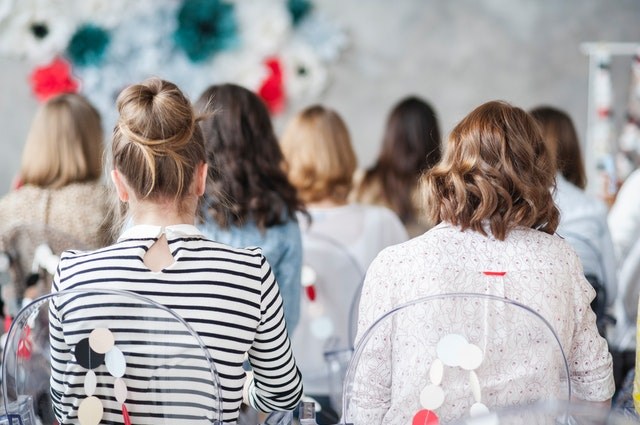The days may be numbered for the dreaded “manel,” or all-man-panel, thanks to the work of a Brussels organisation aimed at increasing women representation in policy debates.
More often than not, the only woman you’ll spot on a panel discussion about an important political event is the moderator. Likewise, when the press covers a crucial issue in the news and quotes an expert or interviews them on television, it’s often a man.
“We're trying to change that,” Dr. Corinna Höerst told The Brussels Times.
Höerst is a co-founder of Brussels Binder, which began as a small consortium of women from major policy think tanks and NGOs in Brussels hoping to network, and quickly grew into an organisation that’s changing the shape - and look - of discussions on everything from Russia-relations to climate change.
“Europe desperately needs intellectual diversity, and the key factor is including women experts that could contribute in bringing innovative ideas to tackle policy challenges,” reads their mission statement.
Related News
- STIB will rename 17 of its stops after women
- International Women’s Day: Gender equality in Belgium
- International Women’s Day: How does Belgium stack up against the rest of the world?
Höerst explained that she first started the group as a means for women in policy circles to network.
“Hearing about all of our experiences, it became very clear that there were a lot of women working in think tanks, and women working in policy. But you never saw them, or saw their names on publications,” said Höerst.
Brussels Binder aims to increase the visibility of women experts by eliminating all the excuses that event organisers and journalists give regarding the lack of gender diversity in their conferences and news coverage.
Don’t know any women experts? They’ve got a database that’s searchable by country, sector, language, and region.
Don’t have time to look around? They’ll often do that for you, emailing event organisers ahead of conferences to provide a list of women who would be well-suited for speaker roles.
“Women struggle with imposter syndrome,” Margaux Demeyer of Brussels Binder told The Brussels Times. “Men are more audacious. They’re not afraid, while many women question themselves: am I good enough for that title, that role? We need to be more audacious, and that’s what we’re trying to do through networking, and the use of the database and the tool kits.”
The tool kits serve as a free, one-stop-shop for organisations and media outlets looking to take real action towards including more women’s voices in important conversations.
One such tool kit is described as providing “practical advice at improving gender balance at conferences, as well as countering excuses for manel debates.”
Another is aimed at teaching women how to network, and providing guidance on how women-led initiatives can work together to collaborate.
There is even a tool kit with strategies for being a male ally.
“Gender equality is equality for genders, and that means for men too,” said Demeyer. One of the tool kits they offer “aims to provide practical advice to men in how to be an ally to promote women’s voices as an individual, event participant, moderator and organiser.”
The European Union recently funded a special project called Brussels Binder Beyond, which added 50 new national databases from 20 different countries to expand the resources to the whole of Europe, and not just the Belgian capital.
As the organisation celebrates International Women’s Day 2021 by partnering with the Dutch Permanent Representation to the EU to promote gender inclusivity in policy-making, co-founder Höerst reflected on this year’s theme of “Choose To Challenge.”
“It points to the fact that we all can do something on an individual basis, but at the end of the day we need our institutions to transform and then our society,” Höerst said. “It's transformative progress on many different levels that were trying to inspire.”
Helen Lyons
The Brussels Times

